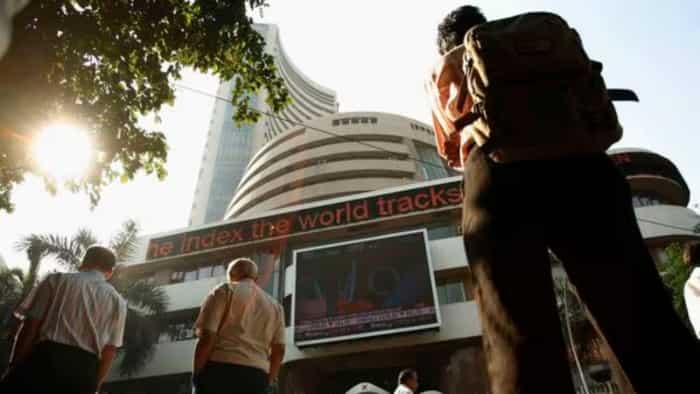Want better roads? What these IIT Hyderabad researchers have done is amazing
India has the second largest road network in the world after the United States, and has about 4.37 km of roads per 1,000 people. The past two decades have seen a drive to increase and improve the Indian roadway network, and as of 2016, 62.5 percent of Indian roads have been paved.

India has the second largest road network in the world after the United States, and has about 4.37 km of roads per 1,000 people. The past two decades have seen a drive to increase and improve the Indian roadway network, and as of 2016, 62.5 percent of Indian roads have been paved. The construction of road surface or pavement is a complex process as they should provide for comfortable riding quality, good skid resistance, favorable light reflecting characteristics, and low noise pollution. However, a study by the Indian Institute of Technology Hyderabad researchers can now make the task easier.
The IIT-Hyderabad researchers have developed models and computational simulation Studies that can predict the performance of road surfaces or pavements and compare these predictions with conventional road designs. Their work has been recently published in the Journal of Transport Engineering, a reputed peer-reviewed journal. This Research offers a route to accurate prediction of pavement performance, which can help in construction of long-lasting roads in India.
Speaking about the importance of this research, Prof. Sireesh Saride, Department of Civil Engineering, IIT Hyderabad, said, “The pavements are complex layered structures influenced by many factors such as material properties, environmental and climatic conditions, traffic volume, subgrade soil profile, construction practices, and pavement aging process. Hence, transportation agencies require innovative techniques to address the variabilities associated with the influencing factors.”
There are two types of pavements - rigid and flexible. The flexible pavements transmit the load downwards from the surface through successive layers of materials and the rigid pavements are made of high strength concrete to resist the vehicle load directly.
"The advantages of flexible pavements are that they are adaptable to stage-wise construction, can be made of low-cost materials and can be easily opened and patched," added Saride on the applicability of flexible pavements to Indian roads. "Reliability-Based Design Optimization – RBDO – is a modeling technique that combines optimization approaches with reliability assessment of structures," he explained.
His team, including Dr. B. Munwar Basha, Associate Professor, Department of Civil Engineering, IIT Hyderabad, and Mr. P.R.T. Pranav, Research Scholar, IIT Hyderabad, has used RBDO to predict safety of multi-layered flexible pavement structures against fatigue and rutting criteria while simultaneously considering the variability arising from individual design parameters.
The results of the simulation studies were compared with data from American Association of State Highway and Transportation Officials (AASHTO) guide for the design of pavements. "AASHTO overestimated reliability by 10-40 per cent compared to RBDO because the former did not consider the variability associated with geometrical and material properties" explained Dr Munwar Basha.
Get Latest Business News, Stock Market Updates and Videos; Check your tax outgo through Income Tax Calculator and save money through our Personal Finance coverage. Check Business Breaking News Live on Zee Business Twitter and Facebook. Subscribe on YouTube.
RECOMMENDED STORIES

Retirement Planning: How one-time investment of Rs 10,00,000 can create Rs 3,00,00,000 retirement corpus

Power of Rs 8,000 SIP: In how many years you can build Rs 9 crore corpus with just Rs 8,000 monthly investment

Rs 3,000 Monthly SIP for 30 Years vs Rs 30,000 Monthly SIP for 10 Years: Know which one can give you higher returns in long term

Monthly Salary Calculations: Is your basic salary Rs 24,500, Rs 53,000, or Rs 81,100? Know how much total salary central government employees may get

444-Day Special FDs: How much will you earn by investing Rs 5 lakh and Rs 7 lakh in SBI, Indian Overseas Bank, and Federal Bank fixed deposit schemes?
06:29 PM IST










 IIT Hyderabad's Center for Healthcare Entrepreneurship raises $9.6 million in funds
IIT Hyderabad's Center for Healthcare Entrepreneurship raises $9.6 million in funds Amid chip shortage, IIT Hyderabad comes up with special course to support India Semiconductor Mission
Amid chip shortage, IIT Hyderabad comes up with special course to support India Semiconductor Mission IIT Hyderabad to set up Suzuki Innovation Centre at its campus; 3-yr pact for India, Japan centric innovations
IIT Hyderabad to set up Suzuki Innovation Centre at its campus; 3-yr pact for India, Japan centric innovations IIT Hyderabad placements 2019: International offers surge; Microsoft, Goldman Sachs among top recruiters
IIT Hyderabad placements 2019: International offers surge; Microsoft, Goldman Sachs among top recruiters IIT Hyderabad invites applications for fully-paid Fellowship, stipend Rs 50,000 per month
IIT Hyderabad invites applications for fully-paid Fellowship, stipend Rs 50,000 per month